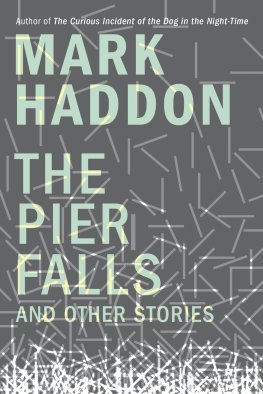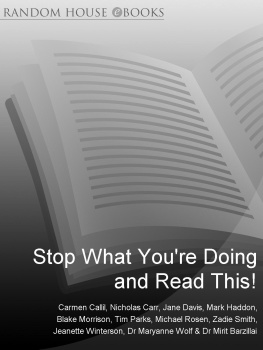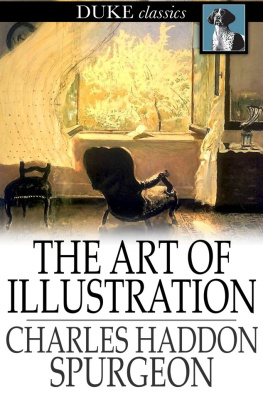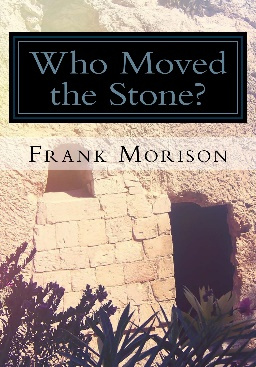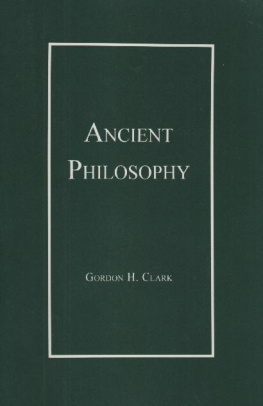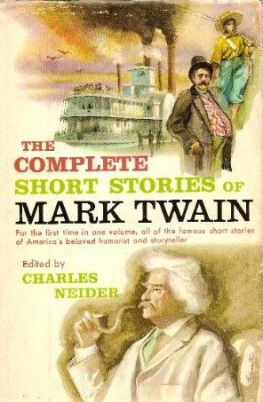Mark Haddon
The Pier Falls: And Other Stories
Now, bring it down
in the kind of fire that flows along ceilings,
that knows the spectral blues; that always starts
in donut fryers or boardwalk kindling
in the dead hour before dawn, that leaves pilings
marooned by mindless tides, that sends a plume
of black smoke high enough to stain the halls
of clouds. Now look around your tiny room
And tell me that you havent got the power.
The Power, Paul Farley
Sumwhyle wyth wormez he werrez, and with wolues als,
Sumwhyle wyth wodwos, at woned in e knarrez,
Boe wyth bullez and berez, and borez oerquyle,
And etaynez, at hym anelede of e hee felle;
Sir Gawain and the Green Knight
23 July 1970, the end of the afternoon. A cool breeze off the Channel, a mackerel sky overhead and, far out, a column of sunlight falling onto a trawler as if God had picked it out for some kind of blessing. The upper storeys of the Regency buildings along the front sit above a gaudy rank of coffee houses and fish bars and knick-knack shops with striped awnings selling 99s and dried seahorses in cellophane envelopes. The names of the hotels are writ large in neon and weatherproof paint. The Excelsior, the Camden, the Royal. The word Royal is missing an o.
Gulls wheel and cry. Two thousand people saunter along the prom, some carrying towels and Tizer to the beach, others pausing to put a shilling in the telescope or to lean against a balustrade whose pistachio-green paint has blistered and popped in a hundred years of salt air. A gull picks up a wafer from a dropped ice cream and lifts into the wind.
On the beach a portly woman hammers a windbreak into the sand with the heel of a shoe while a pair of freckled twins build a fort from sand and lolly sticks. The deckchair man is collecting rentals, doling out change from a leather pouch at his hip. No deeper than your waist, shouts a father. Susan? No deeper than your waist.
The air on the pier is thick with the smell of engine grease and fried onions spooned onto hot dogs. The boys from the ticket booth ride shotgun on the rubber rims of the bumper cars, the contacts scraping and sparking on the live chicken wire nailed to the roof above their heads. A barrel organ plays Strauss waltzes on repeat.
Nine minutes to five. Ozone and sea-sparkle and carnival licence.
This is how it begins.
A rivet fails, one of eight which should clamp the joint between two weight-bearing girders on the western side of the pier. Five have sheared already in heavy January seas earlier this year. There is a faint tremor underfoot as if a suitcase or a stepladder has been dropped somewhere nearby. No one takes any notice. There are now two rivets holding the tonnage previously supported by eight.
In the aquarium by the marina the dolphins turn in their blue prison.
Twelve and a half minutes later another rivet snaps and a section of the pier drops by half an inch with a soft thump. People turn to look at one another. The same momentary reduction in weight you feel when a lift starts descending. But the pier is always moving in the wind and the tide, so everyone returns to eating their pineapple fritters and rolling coins into the fruit machines.
The noise, when it comes, is like the noise of a redwood being felled, wood and metal bending and splitting under pressure. Everyone looks at their feet, feeling the hum and judder of the struts. The noise stops and there is a moment of silence, as if the sea itself were holding its breath. Then, with a peal of biblical thunder, a wide semicircle of walkway is hauled seaward by the weight of the broken girders underneath. A woman and three children standing at the rail drop instantly. Six more people are poured, scrabbling, down the half-crater of shattered wood into the sea. If you look through the black haystack of planks and beams you can see three figures thrashing in the dark water, a fourth floating face-down and a fifth folded over a weed-covered beam. The rest are trapped underwater somewhere. Up on the pier a man hurls five lifebelts one after the other into the sea. Other holidaymakers drop their possessions as they flee so that the walkway is littered with bottles and sunglasses and cardboard cones of chips. A cocker spaniel runs in circles trailing a blue lead.
Two men are helping an elderly lady to her feet when yet more decking gives way beneath them. The shorter, bearded man grabs the claw foot of an iron bench and hangs onto the woman till a teenage boy is able to lean down and help them both up, but the taller man with the braces and the rolled-up shirtsleeves slides down the buckled planking till he is brought to a halt by a spike of broken rail which enters the small of his back. He wriggles like a fish. No one will go down to help him. The slope is too steep, the structure too untrustworthy. A father turns his daughters face away.
The men running the big wheel are trying to empty each gondola in turn, but those stuck at the top of the ride are screaming and those lower down are unwilling to wait their turn and jump out, some twisting ankles, one breaking a wrist.
On the beach everyone stands and stares at the hole punched into the familiar view. The coloured lights still flash. Faintly they can hear the Emperor Waltz. Five men tear off shoes and shirts and trousers and run into the surf.
A line of seven ornamental belvederes runs down the centre of the pier. The western side of this spine is now impassable, so everyone seaward of the fall is squeezing through the bottleneck on the eastern side to reach the turnstiles, the promenade and safety. At the narrowest point people are starting to lose their footing and tumble so that those still upright must either walk on top of them or fall and be trampled in their turn.
Sixty seconds gone, seven people dead, three survivors in the water. The man with the braces and the rolled-up sleeves is still alive but will not be for long. Eight people, three of them children, are being crushed by the crowd pouring over them.
One of the belvederes is listing now, the metal structure being twisted so hard that the twenty-two glass windows explode one after the other.
The pier manager has opened the service gate beside the turnstiles and escapees are fanning onto the pavement, dishevelled, bloody, wide-eyed. A small boy is being carried in the arms of his father. A teenage girl with a shattered femur sticking through the skin of her right leg is suspended between the shoulders of two men.
The traffic along the promenade comes to a halt and a crowd lines the rails. The whole front is so quiet that everyone hears the noise this time.
Two minutes and twenty seconds. The belvedere falls first, dragging the metal framework and the decking after it. Forty-seven people drop into a threshing machine of spars and beams. Only six of these people will survive, one of them a boy of six whose parents wrap themselves around him as they fall.
The rubberised wires carrying power along the pier spark like fireworks as they are torn apart. All the lights go out on the end of the pier. The barrel organ wheezes to a halt.
The men swimming out to help are lifted on the small tsunami generated by the mass of broken pier entering the water. It passes under them and heads towards the beach where it sends everyone scurrying above the high-water mark as if it were infected by the event which caused it.
The arcade manager sits in his tiny office at the end of the pier, the dead receiver pressed to his ear. He is twenty-five. He has never even been to London. He has no idea what to do.
The pilot of a twin-engined Cessna 76-D looks down. He cant believe what he is seeing. He banks and circles the pier to double-check before radioing Shoreham tower.

